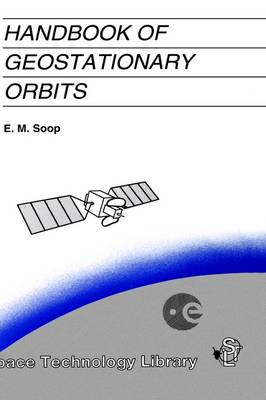Space Technology Library
1 total work
v. 3
The Handbook of Geostationary Orbits is based on sixteen years' experience in controlling the orbits of about fifteen geostationary satellites. It provides the necessary theoretical and practical background for engineers and spacecraft operators, but it can also be used as an introductory textbook in space courses at high school or university. The contents include: Fundamental definitions of orbits and coordinate systems; legal aspects; elliptic and perturbed orbits; in-orbit control; single and multiple in-plane manoeuvres; longitude and eccentricity station keeping; longitude shift and reacquisition; re-orbiting of old spacecraft; inclination manoeuvres; passive and active inclination station keeping; long-term inclination strategy; operational practice; eclipses by Earth and Moon; co-location; separation methods; proximity manoeuvres; orbit determination; estimation process; tracking accuracy; orbit observability and accuracy.
